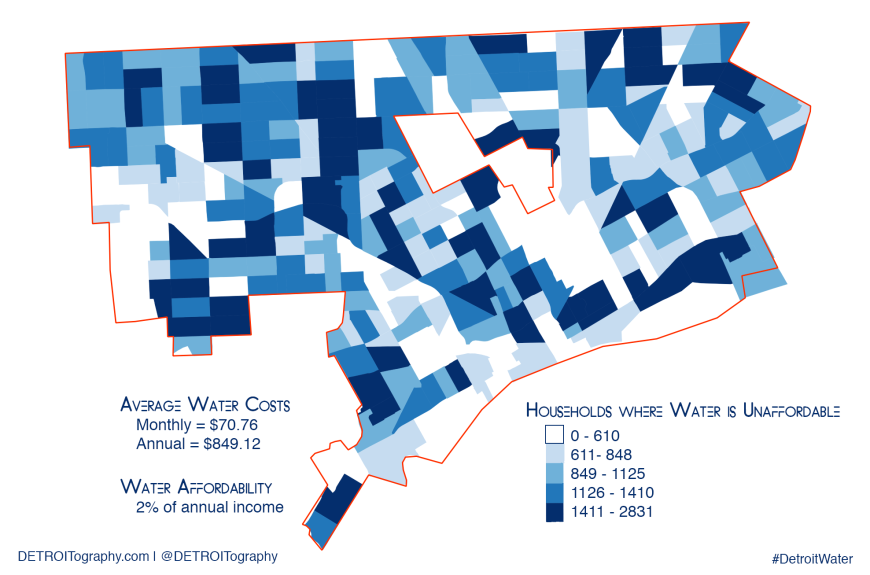As elected officials debate how to handle the most recent public health crisis in Detroit with water shut offs, MICHUHCAN, a non-profit education and advocacy organization on health issues, strongly urges these officials to step back from the usual, short term “band-aid” approaches and look to developing water policies that reflect the actual capacities of residents to afford their water bills. The recent ALICE report, compiled by the Michigan United Ways, clearly articulates the realities for many, many low income families. In Michigan, it takes an income of $16,818 for an individual from a job paying $8.41 an hour to meet most, but not ALL of one’s basic survival needs. For a household of two, the income need rises to $50, 365 from a job (or jobs) totaling $25.17 per hour. Forty percent (40%) of Michigan residents fall below these thresholds. In Detroit, that number rises.
With an average water bill of $847.17 in Detroit, it would take an income of approximately $40,000 to meet the Environmental Protection Agency’s benchmark for water affordability of 2% of household income. This income level is far above most residents living in Detroit where the average income for a household of 3 is $19,790.*
Water, like health care, is a NEED, not a want for human beings. Lack of water will cause huge public health issues with disease and many other unintended consequences, including affecting a child’s ability to learn. Addressing these issues will require untold millions of dollars and the unnecessary loss of precious lives. As residents of Michigan, we will either pay now or pay later.
Citizens have a right to expect our elected officials to develop answers to problems that reflect an understanding that “liberty and justice for all” requires approaches that protect citizens who are unable, at any given time, to afford basic needs. Water, as health care, needs to be a financially sustainable resource. Spreading the cost of these necessities among all of us assures the availability to all of us, even when we confront difficult financial times in our lives.
The answer is not cutting off access to basic needs when bills are not affordable or privatizing the service. The answer is the development of strong water policy that protects low income citizens from losing basic needs and doesn’t add additional financial stress to their lives with bills that are unaffordable for their income level. The development of jobs, with incomes that support a family’s basic needs, is also essential.
We need to join together to demand fair and just public policies on access to basic needs, such as water, in Detroit and all of Michigan.
Marjorie Mitchell, Executive Director
*Analysis completed by Alex B. Hill

